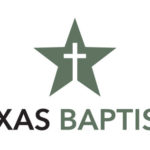For more than six years, Keith Platte has been the director of the Baptist Student Ministry at Howard Payne University in Brownwood, Texas. From deep in the heart of one Texan, he shares his background and thoughts on church and ministry. To suggest a Baptist General Convention of Texas-affiliated leader to be featured in this column, or to apply to be featured yourself, click here.
Background
Where else have you worked, and what were your positions?
Prior to Howard Payne, I was in seminary at Logsdon Seminary in Abilene. While attending there, I served as a graduate intern for the Baptist Student Ministry at Hardin-Simmons University.
Where did you grow up?
My dad is a Baptist pastor who ministered in rural town churches. I grew up in those communities of faith and friendship in Dora, N.M., Wilson, Texas, and Shattuck, Okla.
How did you come to faith in Christ?
Having grown up in the home of a pastor, the gospel was something that was talked about regularly. The church family was our second family. I took for granted as a young child the privilege that I had to hear the Good News of Jesus so frequently and to be shown the love of Christ-followers so often.
At the age of seven, I realized that my life was not complete without Jesus as my Lord. I surrendered my will, at that time, to the yielding of the Holy Spirit, professed Christ as Lord and continued my faith journey at that moment as a believer and receiver of Jesus Christ.
Where were you educated, and what degrees did you receive?
Sign up for our weekly edition and get all our headlines in your inbox on Thursdays
- Bachelor of Arts in religion with an emphasis in missions from Wayland Baptist University
- Masters of Divinity from Logsdon Seminary with a concentration in cross-cultural studies
Ministry/Profession
Why do you feel called into campus ministry?
The college campuses are a gateway to the future of our churches, missions and service in the kingdom on earth. At no other time in people’s lives are they more likely to ask and be open to existential questions. At no other time are people as mobile as they are in their early twenties. If churches and campus ministries can help capture the attention of these able, available, learning young adults, they will be the monumental movers who are led by the Spirit for the next generation to lead our churches.
Helping college students to form a healthy worldview is something that I have been uniquely impassioned about. Learning about cross-cultural matters in my education and through my calling has uniquely trained me to come alongside college students and aid them in developing a heart for the whole world, trying to see the world with God’s eyes, having compassion for the lost and share the Good News and make friends with anyone, whether they look like us or not.
What is your favorite aspect of campus ministry? Why?
I love to invest in college students, even if it is only for a few years. When they know they are valued and they have a purpose, they are so eager to serve.
What one aspect of your ministry gives you the greatest joy?
I love equipping others. When I see my students grasping a concept from Scripture they never considered, or implementing a ministry they feel led to serve in, I know they are not just regurgitating the last sermon they heard. They are putting faith into action, and I love being able to help them find the tools and encouragement to do that well.
What would you like more people to know about campus ministry?
Campus ministry like BSM does not exist without local churches. Sometimes people think we are a separate parachurch organization that operates outside the realm of church life. This is a false assumption. What I convey to my students is that BSM is an extension of local churches to the campus. We look for ways to highlight churches and partner with them on and off campus. We couldn’t do campus ministry without local churches.
College students are only part of the Body of Christ. While we seek to make disciples on college campuses, students need a church home to fully express their spiritual gifts and to find the fullness of community throughout generations.
What priorities or goals guide your ministry?
Love. Serve. Share. This is our motto around our BSM. When asked by an expert in the law about the greatest commandment, Jesus responded with the Shema of Judaism found in Deuteronomy 6:4–9, but adds Leviticus 19:18. Love drives all we do; love God and love others. Love should compel us to action, both in service to others and to share the good news of Jesus Christ through whatever we do.
Based on what you have observed from campus ministry, what do you think about the future of our country and/or world?
I am optimistic. Obviously, God can do whatever God wants, but we see that God chooses to use humans in this world. I am encouraged by the number of students who want to see their peers reached with the gospel and who will dedicate their lives to serving in secular fields of study so they can use their occupation as a way to reach people for the kingdom of God.
Based on what you have observed from campus ministry, what do you think about the future of the church?
Because of my unique partnership with several churches in our area, I have seen many churches trending toward having bi-vocational pastors or paring down the amount of full-time staff. I think our campus ministries are preparing college students to help take leadership roles in churches despite a need for them to be paid. Some are definitely feeling the need to further their theological education to lead in churches, but we have seen great spiritual leaders come through our campus ministry who will serve their church and have a secular occupation.
If you could launch any new ministry, what would it be? Why?
I would love to open a coffee shop.
I know that sounds pretty cliché coming from a campus minister, but hear me out. I love providing an atmosphere for people to have conversations. In this coffee shop, beyond coffee, there would be small pastries that you could purchase for yourself and you could pre-purchase for someone who is hungry. Once you’ve pre-purchased a pastry, you get to hang a note on one wall of the coffee shop. If someone down on their luck comes in and needs “bread,” there would already be a pastry provided for them. They can take the note and turn it in for a pastry, then they get to write a thank-you note for the other wall of the coffee shop.
On Sunday mornings, the coffee shop would be transformed into a church gathering. It would be more of a home-church type gathering, and the staff would not be full-time as to not be a financial burden on the church. The overhead costs would be less because the church building is absorbed into the overhead cost of the coffee shop. Given the fact that the coffee shop would probably have frequent visitors who are in need of money, the church would be open to them coming on Sundays and all would be seen as equals despite socioeconomic status.
The reason I’d like to start this is that I would like to see more smaller churches formed that don’t have as much socioeconomic divide, and the church would be in the midst of city life and be positioned to serve people and minister to the immediate community (e.g., other businesses, the financially poor, patrons, etc.).
Name the three most significant challenges and/or influences facing your ministry.
- Dealing with students who grew up with religion and know of Christ but live life however they want.
- The decline of church attendance and giving.
- Addressing economic, social, gender and racial issues of privilege.
What key opportunities will campus ministry undertake in the next 10 years?
College students connect with missions. This has been true for many years and will continue to be true in the future. The shape of that may change based on need.
What key issues face college or university campuses today?
There is a growing rate of students who are in a place where they need some kind of counseling service. Not all college students can afford this type of professional service. Many places can use more assistance with this, and churches could be a big help if they have staff who are licensed counselors or can assist students in professional counseling matters at a decreased cost.
About Keith
Who were/are your mentors, and how did/do they influence you?
My mom and dad showed me what it was like to serve a community well. They valued me and my brothers as a family but taught us also how to put others before ourselves. My BSM director at Wayland Baptist University, Donnie Brown, was a mentor to me. He showed me how you can have a heart for campus ministry and for the global community.
What is the impact of your ministry on your family?
Campus ministry has been rewarding to my family and, at times, a stressor. Anyone in campus ministry can tell you that there are certain times of year that you are not at home as much as you would like. The campus is buzzing with life, and for the sake of the ministry you are there. Fortunately, we have found times for my family to take part in the ministry with me. College students around our ministry know my kids and wife. Sometimes they would rather see them than me.
Name some of your favorite non-biblical books or authors, and explain why.
I have always like “The Chronicles of Narnia.” Stories convey things to the reader in a way that instruction or nonfiction can’t quite do. Stories have a way of infiltrating our being and changing us, becoming part of us. C. S. Lewis captures the attention of readers young and old in his literary allegory. Even as a grown man I can read this series and find myself as well as the characteristics of God.
What is your favorite Bible verse or passage? Why?
1 Thessalonians 2:8 says, “We cared so much for you that we were pleased to share with you not only the gospel of God but also our own lives, because you had become dear to us.”
This conveys Paul and his companions’ love for the people at Thessalonica. The verse also reminds us that because of love, they shared the Good News of God and their very lives. Often, we can be tempted to think that we share the gospel of God and move on, but the way Paul shows here is that they loved people, shared Good News and shared life.
Other than Jesus, who is your favorite Bible character? Why?
Elijah and Elisha.
I have always been enamored with the amazing things that God did through these men. There were some miraculous things in the Old Testament that were attributed to these “men of God.” To me, this has always been a testimony of what God can do through someone who is devoted to the kingdom.
Faithful obedience is a quality I want to emulate.














We seek to connect God’s story and God’s people around the world. To learn more about God’s story, click here.
Send comments and feedback to Eric Black, our editor. For comments to be published, please specify “letter to the editor.” Maximum length for publication is 300 words.